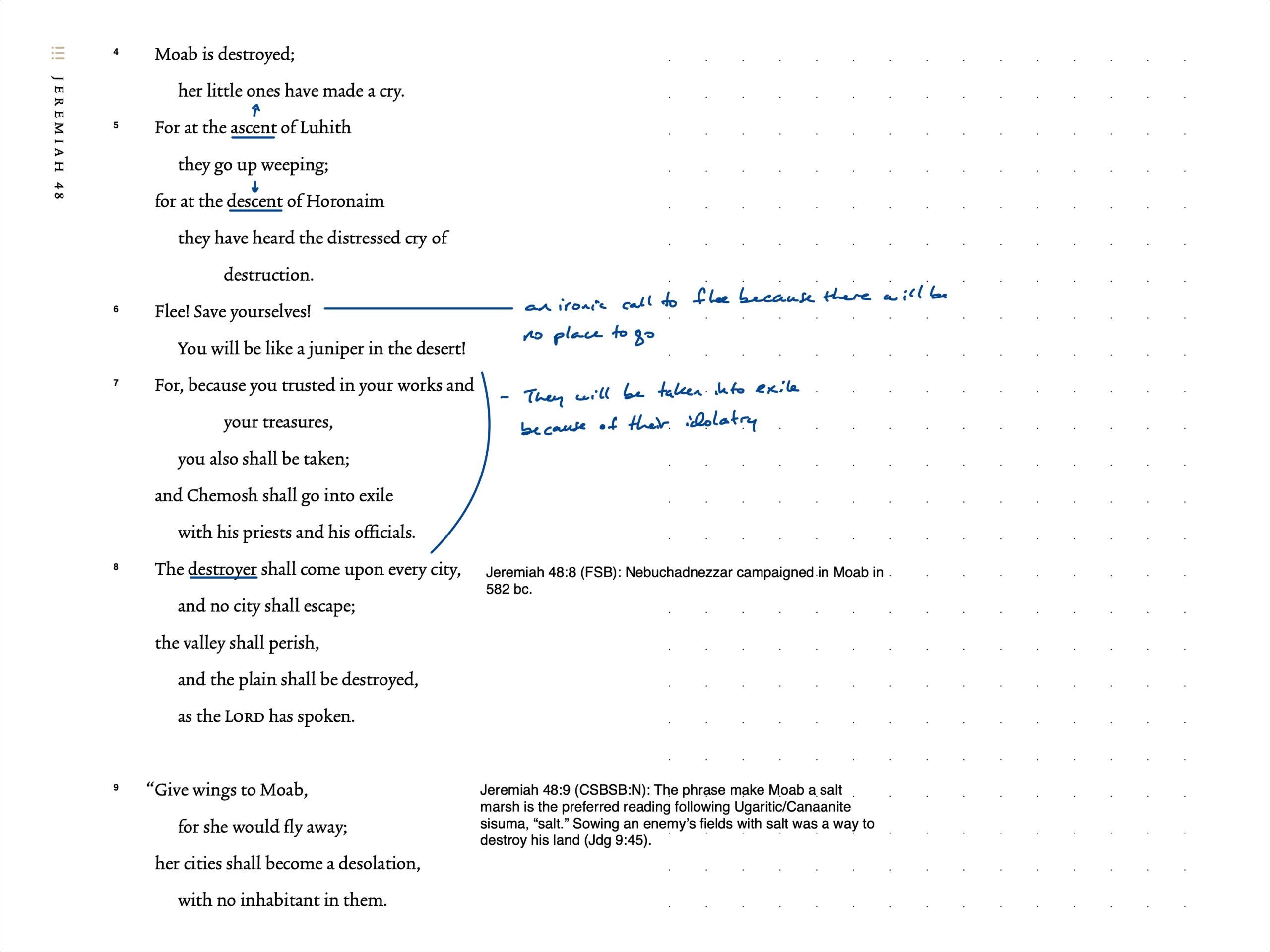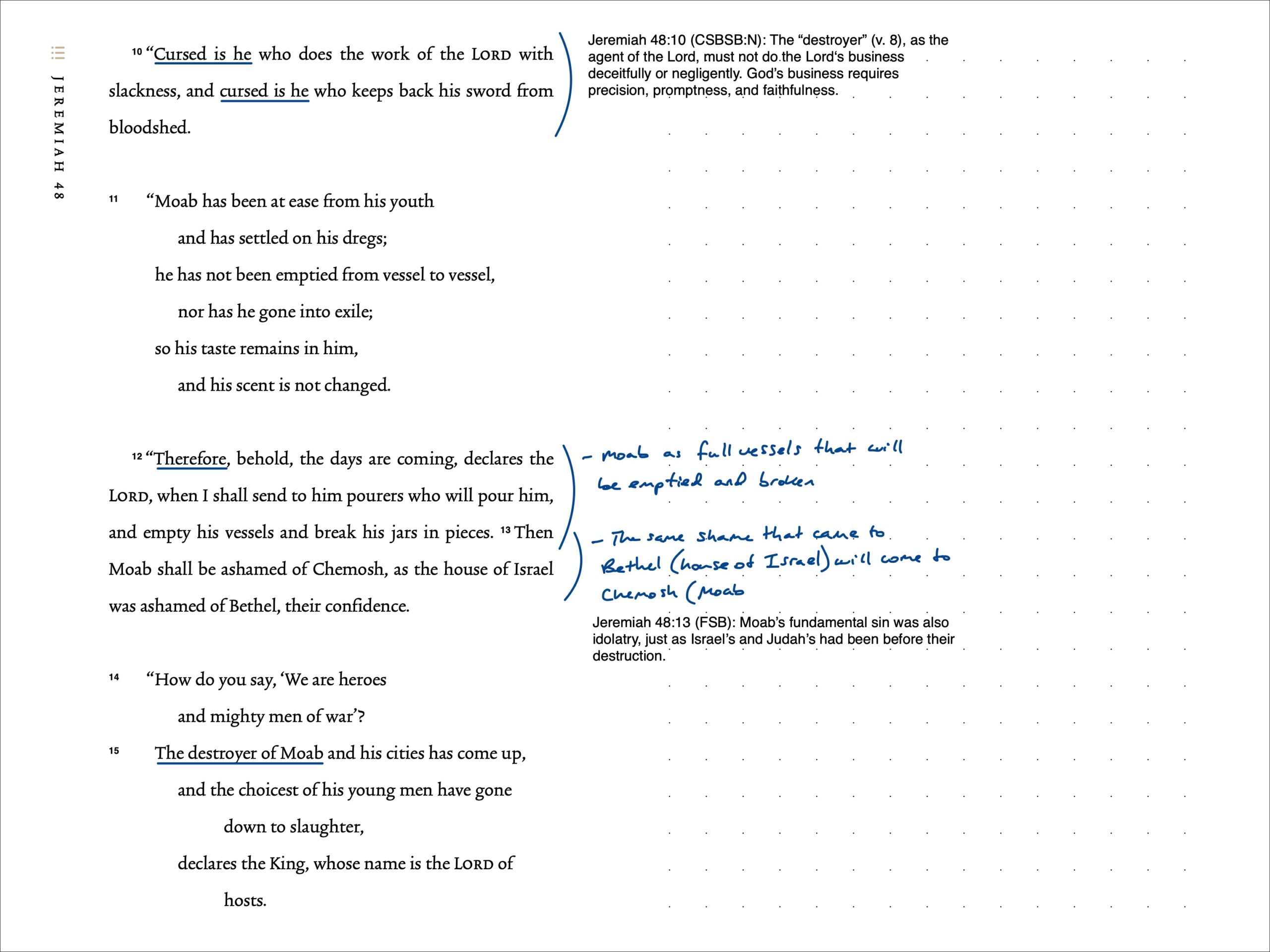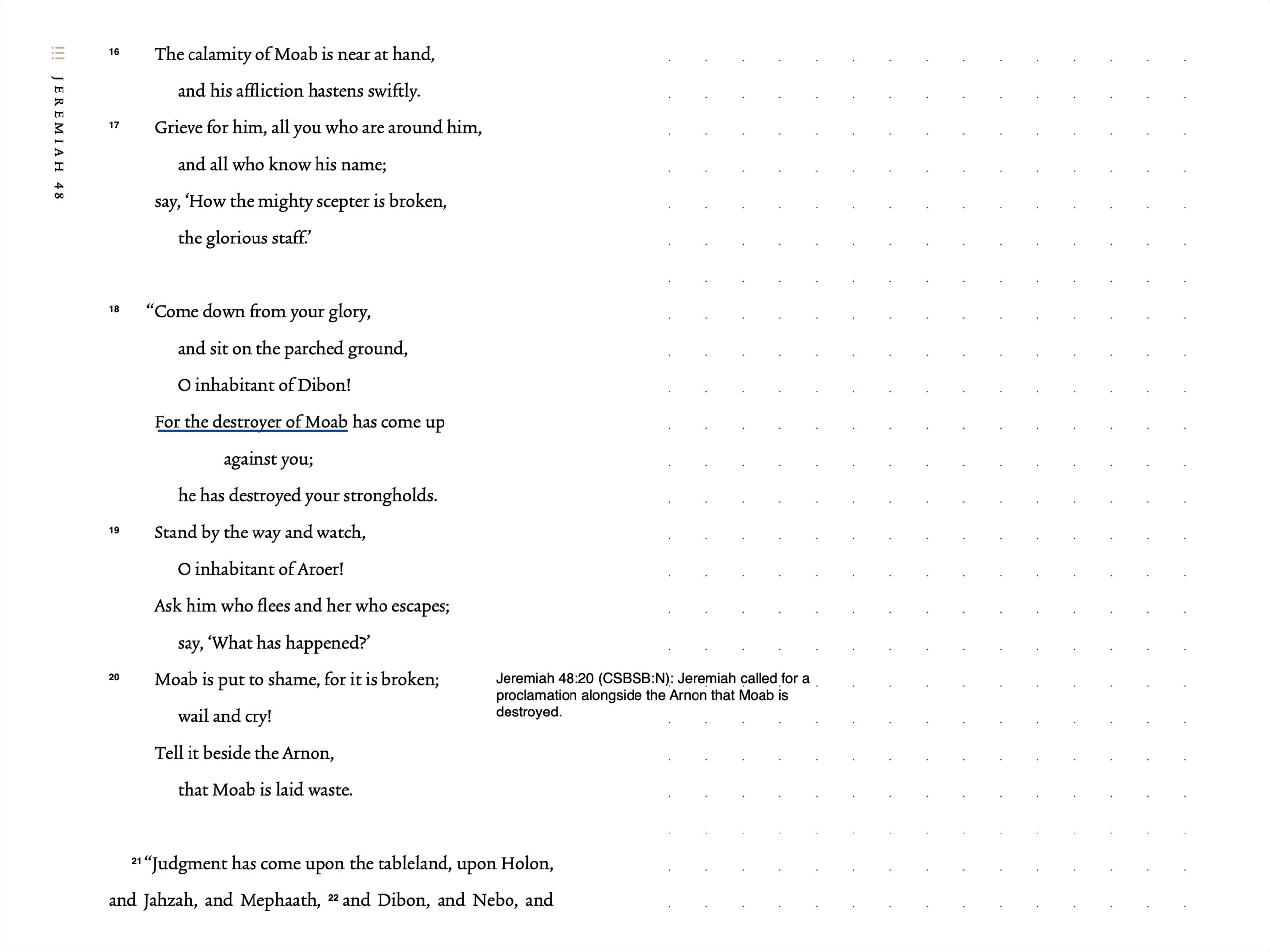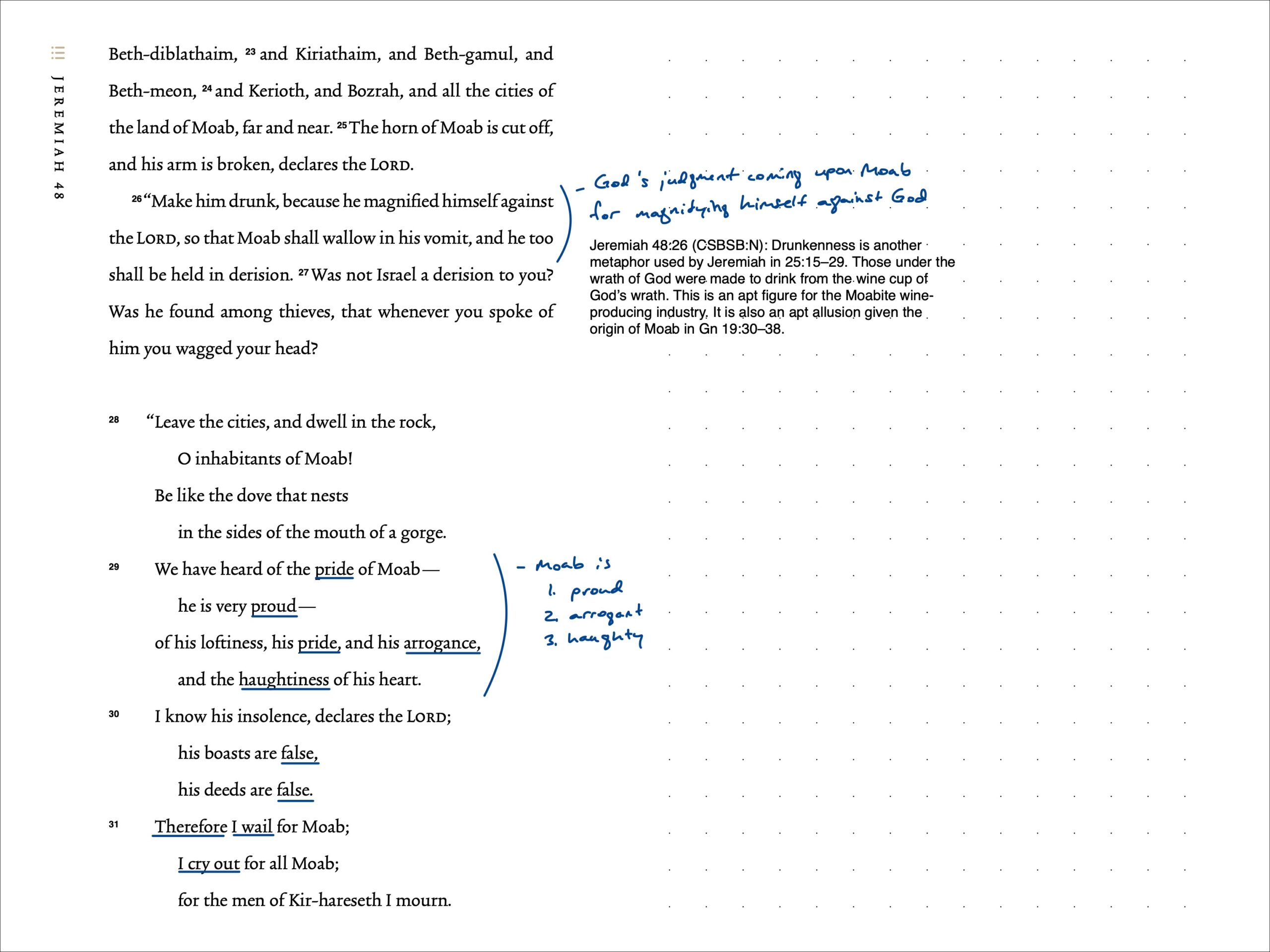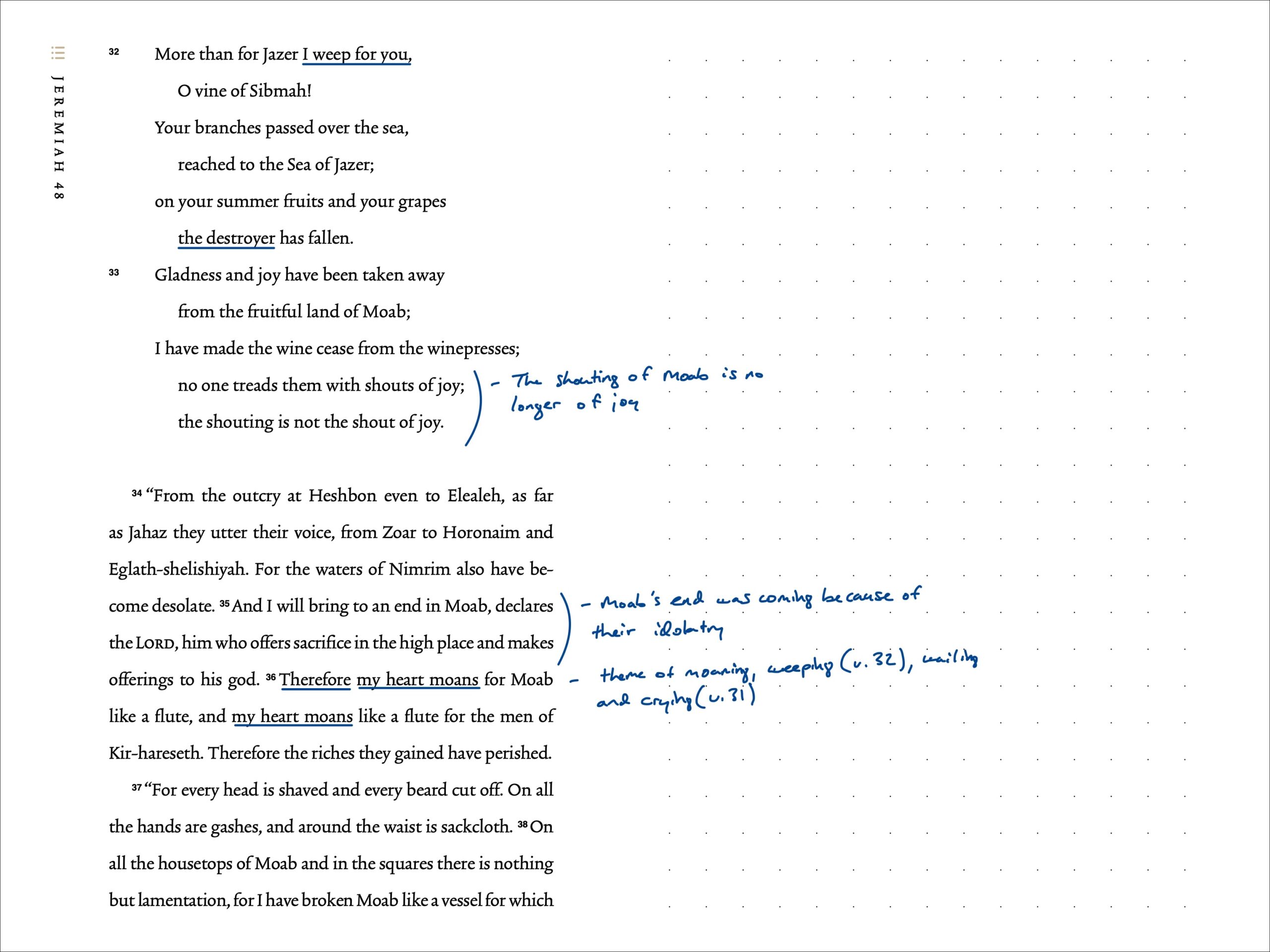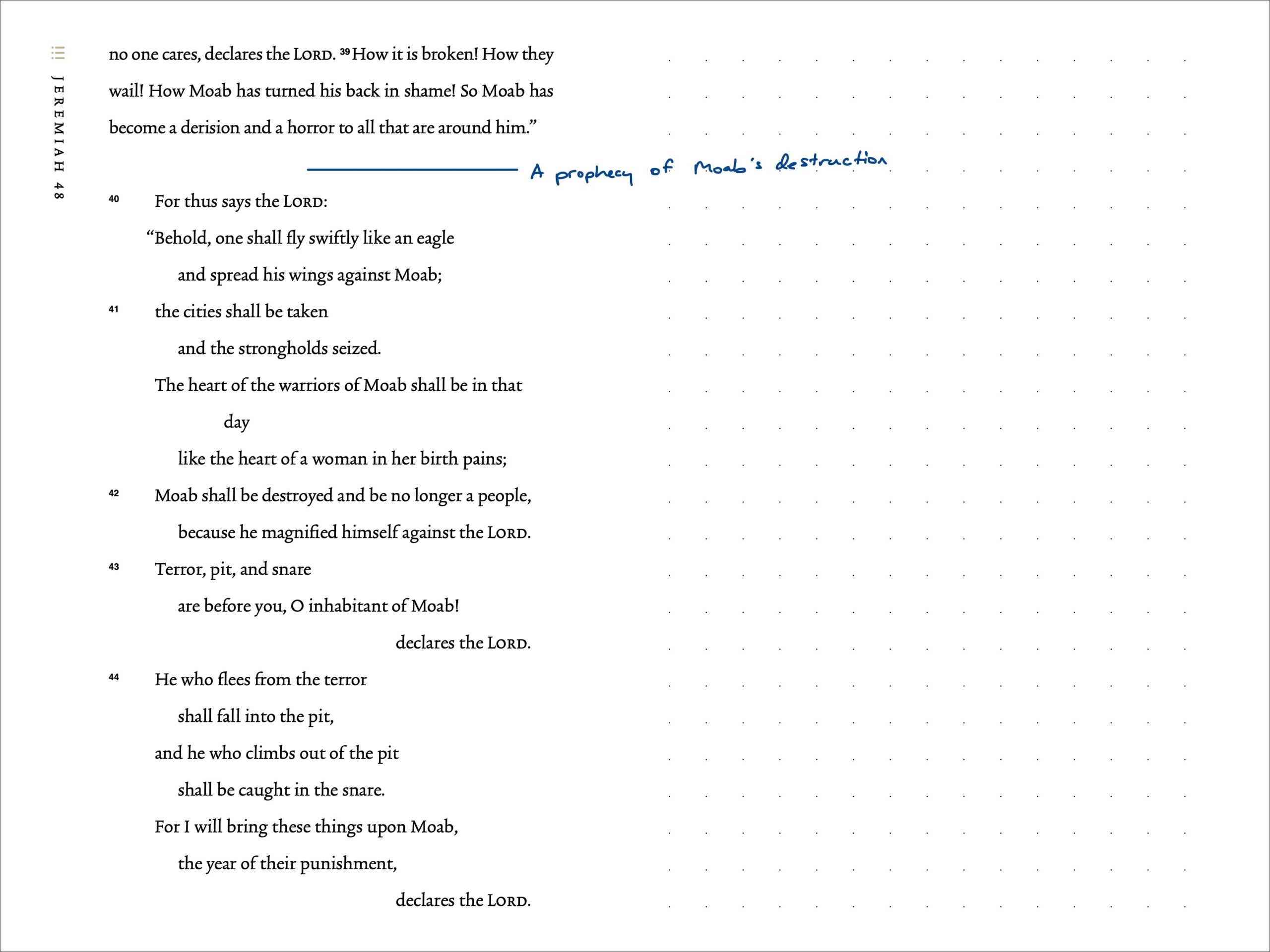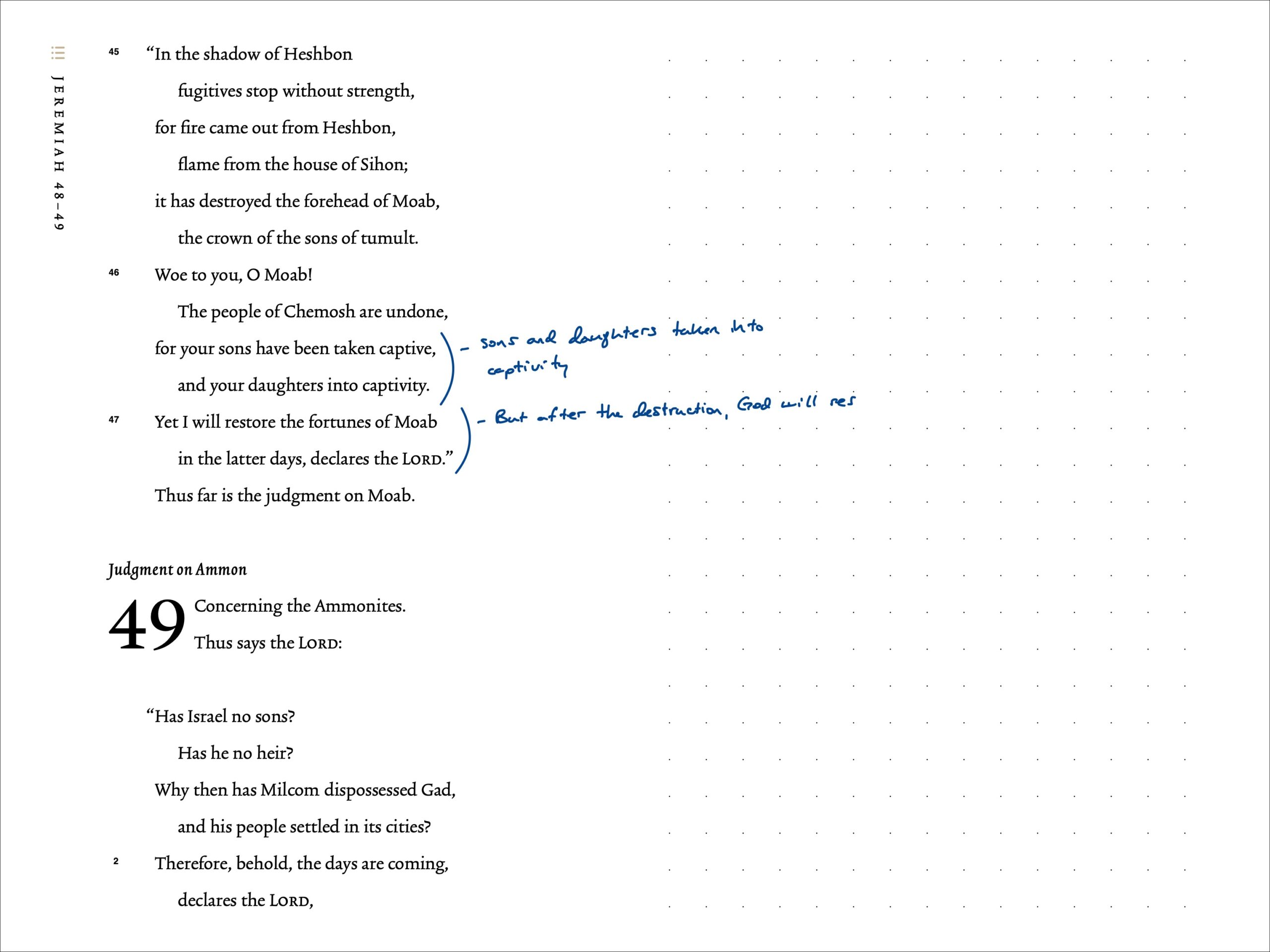| Date | Version | Reading Plan |
|---|---|---|
| @August 10, 2023 | ESV (2016) | ESV Prophets Plan 2023 |
Pericopes
- Judgment on Moab
Notes
The chapter opens with a prophecy against Moab, Judah’s neighbor east of the Dead Sea in the Transjordan. Moab was related to Israel through Abraham’s nephew, Lot (Gen. 19:37).
In Jer. 48:1, woe is declared to a number of cities within Moab. There will be crying, weeping and great distress as the region is destroyed (Jer. 48:3-5). They are called to flee, but this is ironic because there is no place to go (Jer. 48:6). Judgment had come upon them because of their idolatry, trusting in their “works” and “treasures” (Jer. 48:7).
Jer. 48:8 (and several other verses in the chapter) speak of the destroyer who “shall come upon every city”. This agent of the LORD must do his work honorably, without deceit or negligence, lest he be cursed (Jer. 48:10). God’s business requires precision, promptness and faithfulness.
In Jer. 48:12-3, God speaks of sending “pourers” who will pour Moab as vessels and “break his jars in pieces”. As the house of Israel was ashamed of Bethel, this same shame will be shown of Chemosh by Moab (Jer. 48:3).
More references of the destroyer come in Jer. 48:14-20 who has come up against Moab. The choicest of Moab’s young men have gone to slaughter (Jer. 48:15) and his affliction hastens swiftly (Jer. 48:16). The destroyer has destroyed Moab’s strongholds (Jer. 48:18) and it has been laid waste (Jer. 48:20).
Jer. 48:21-25 are a description of judgment on the cities of Moab “far and near”, that the “horn of Moab is cut off, and his arm is broken” (Jer. 48:25).
In Jer. 48:26, a command is made to “Make him drunk” (”him” being Moab). Those under God’s wrath were made to drink from the wine cup of His wrath. This is an apt figure of the Moabite wine-producing industry and an allusion to Moab’s origin in Gen. 19:30-38.
In Jer. 48:28-39, Moab is called to leave the cities and to be “like the dove that nests in the sides of the mouth of a gorge.” The once-proud people were exhorted to flee to remote hiding places. Their haughtiness and arrogance were well-known, but God still genuinely mourns over their ruined crops and loss of joy and gladness (Jer. 48:31). The shouting of Moab is no longer of joy (Jer. 48:33).
In Jer. 48:34-39, there are more Moabite cities listed and their outcry amid the destruction. Moab’s end was coming because of their idolatry, to “him who offers sacrifice in the high places and makes offerings to his god.” (Jer. 48:35). Every head is shaved and beard cut off and there nothing but lamentation because God has “broken Moab like a vessel for which no one cares” (Jer. 48:38).
Much of the remaining verses (Jer. 48:40-47) are of a final prophecy of Moab’s destruction; that one “shall fly swiftly like an eagle and spread his wings against Moab” (Jer. 48:40). Those who flee from terror will fall into a pit and climbing out will only lead to being caught in a snare; there will be no escape. However, the final verse gives hope for the future, that after everything the Moabites have to endure, God will “restore the fortunes of Moab in the latter days” (Jer. 48:47).
Application
Nearly the entire chapter is of God’s justice against Moab for its idolatrous practices. So much detail is given to the effects of judgment; weeping, wailing, mourning and crying out. It is graphic and visceral, but all of it comes to a head in the final verse in which God says, “Yet I will restore”. (Jer. 48:47).
Prophecies of restoration were not just for Israel and Judah. All nations who turned from their wickedness to worship the one, true God would experience His presence and blessing. This is such a hopeful message for us today; that no matter how far gone we think of ourselves or others, God is willing and ready to restore. He is righteous and dispenses judgment and correction, but this is grace in action, putting back into order all that has been corrupted by sin. So resolute is our God in restoration that He sent and sacrificed His only Son; that by His death He would take upon Himself our due wrath and restore us to righteousness before Him. What wonderful things to consider of our God of all mercy.
Scripture Journal Notes
Commentaries & Resources Used
- ESV Study Bible. (Wheaton, IL: Crossway, 2008)
- Faithlife Study Bible (Lexham Press, 2016)
- Believer’s Bible Commentary (Thomas Nelson, 2016)
- CSB Study Bible Notes (Holman Bible Publishers, 2017)
- Matthew Henry’s Commentary on the Whole Bible (Guardian Press, 1976)
- The Bible: A Reader’s Guide (Sterling Publishing, 2011)
- The Infographic Bible (Zondervan, 2018)
- ESV Digital Scripture Journal (Crossway, 2019)

